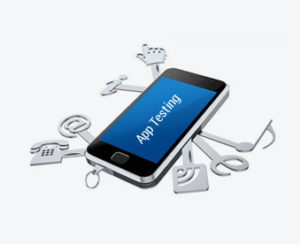Mobile App Testing for Functionality and Usability includes various types of test.
A typical user’s experience involves using the application and surveying through the many features. Whilst surveying, the user does not particularly incline on the set of features but also on the application interface, the way it responds and performs. Even a feature packed application will be deemed unsuccessful and disappoint its users if it were to crash very often. The ultimate goal of the application would not be achieved and it would be harder to utilize the application for its intended goal. This is where testing comes in. Users test your application for you and provide necessary feedback that can be incorporated into the final version. For example, if the application crashes every time the user taps on a component thrice, or if the application is slower on certain devices, compatibility issues related to RAM availability all of these rectify only through testing. There are four categories of tests to perform to assess a Mobile application’s functionality and usability.
• Functional Tests: Confirm whether the application is functional across a range of internal functions
• Compatibility Tests: Confirms application functionality across operating systems and mobile devices
• Performance Tests: Loading and response times, smooth transition between options, and login difficulties are checked for in these tests
• Usability tests: The frequency of the application crashing is measured and rectifications made to enhance the application usability.
Parameters such as the quality of the application, user-friendliness, reliability, compatibility, fall under functionality and usability.
Functional Testing:
The functionality, the core behavior of an application is tested. These tests ensure that the application works as deemed to as per its requirements. Two key aspects of any application are the user interface and call-to-action of the application. For Mobile App Testing, the user interface requires certain discretion as it is more complicated. Multiple operating systems, several device versions, each having their own software versions installed within, all of which makes for a testing system that has to be automated. The application also has to interact with other mobile applications and has to function in the flow. For these reasons, mobile application functional testing is detailed and requires several tools that are all in high demand for their services. Often Mobile App Testing is used automated tools and manually designed tests.
Usability testing:
For a user, an application serves as a utility. The ease of utility is a measure and a parameter considered in usability testing of mobile applications. The application’s user-friendliness, flexibility, and ease of access are determined. Most mobile applications score well on the usability tests.





